1950's and 1960's Responses
Harper Lee published the novel in 1960, just before the peak of the Civil Rights Movement.
Responses to To Kill a Mockingbird were mixed. However, because of the great amount of racial tension during the time of its release, the book was widely sold, selling over fifteen million copies.
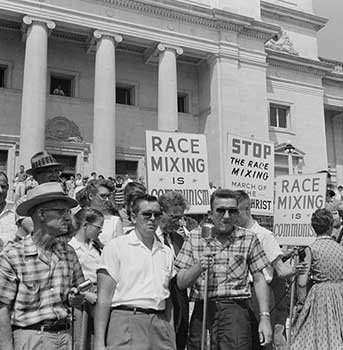
The novel won the Pulitzer Prize in 1961 and was made into an Academy Award-winning film in 1962.
To Kill a Mockingbird had a great impact on a society full of racial tension and served as a catalyst for the Civil Rights Movement.
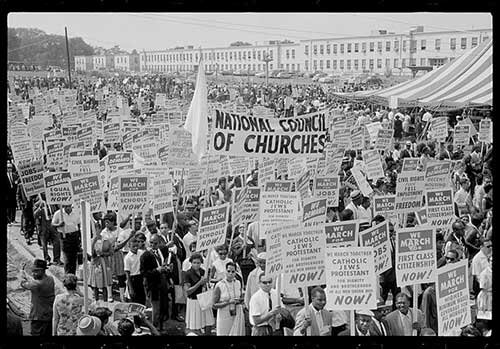
Civil Rights Movement
The civil rights movement was a movement that sought to end racial discrimination in the United States.
The movement, which began with protest and boycotts in the 1950's, exploded in the 1960's as more people and organizations (such as the NAACP and SCLC) joined the movement.
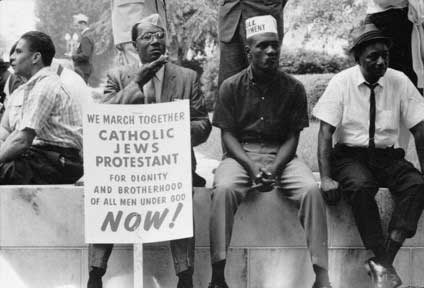
Those in the movement used non-violent and legal means to gain rights. They flooded the school systems with lawsuits in efforts to integrate the schools.
They seated themselves at "whites-only" lunch counters and refused to leave until they were served.
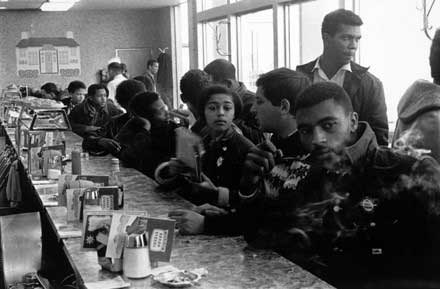
By the end of 1960, more than 70,000 people had participated in such demonstrations in 150 cities and towns and over 3,600 had been arrested.
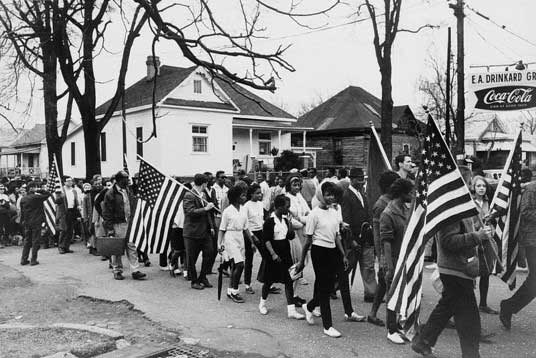
President John F. Kennedy, who was elected president in 1960, largely prompted by the violent resistance to the Civil Rights Movement, pushed for more civil rights legislation.
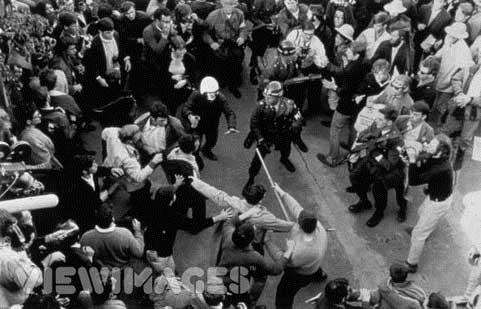
Martin Luther King, Jr. became the movement's most well-known leader.
In 1963, he led a protest in Birmingham, AL. Birmingham's police force was known for harassing the black community. There had also been eighteen racially motivated bombings and fifty cross burnings in Birmingham between 1957 and 1963.
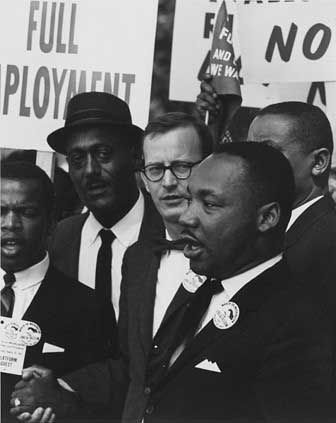
During this protest, King was arrested and police dogs were released on demonstrators.
In that same year, King delivered his famous "I Have a Dream" speech during the March on Washington. This march was meant to lobby Congress to support Kennedy's civil rights initiatives.
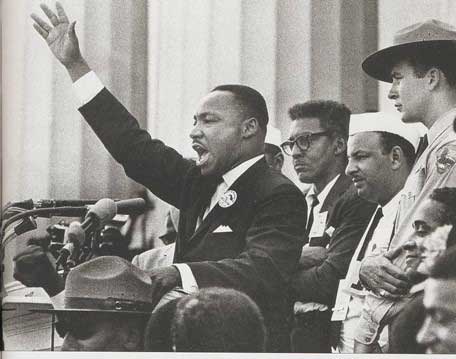
The Civil Rights Act of 1964 was passed, which outlawed racial discrimination in public accommodations, which later led to the desegregation of schools.
Voting rights also improved for black Americans in the South.
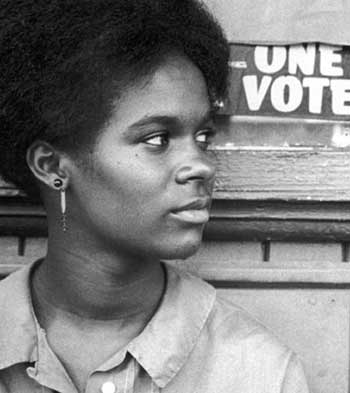
To Kill A Mockingbird
Harper Lee's novel, as well as the sacrifices of many people during the Civil Rights Movement, led to the deserved freedoms of all and the racial diversity that is present in the South today.